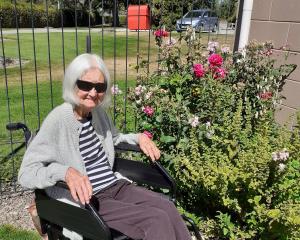
The 71-year-old was brought up on a farm at the foot of Lake Hāwea and the Urquhart name is a familiar one to the area.
He said while the many local farming names such as Urquhart, McCarthy and Muir had been here for decades, every one of those and more had to change the way they farmed because of wool prices, irrigation and land development in the Upper Clutha region.
"I’ve been here all my life.
"It’s changing. It has changed because the farms we were all brought up on aren’t economic on their own, so we have had to diversify or get bigger. The old dairying thing has helped, the grazing. That’s made it a little better for the smaller blocks."
Mr Urquhart and one of his four sons, also Donald, ended up shifting to contracting out to farms, instead of running the family farm.
"Two of the boys were interested and it wasn’t big enough to support three families, so we sold the land and brought the contracting business. It was pretty much to buy a job."
It was his great-grandfather, Alexander, who originally settled at the opposite end of the lake, known now as Dingleburn Station. He died in 1878, and the family moved closer to what was once the tiny town of Lake Hāwea.
He was brought up on the farm and, apart from three years in the North Island, Mr Urquhart has been a Hāwea local all his life.
Since downsizing to 50ha, the two Donalds have instead been helping other farmers in the area.
The younger of the two said since 2008 when irrigation in the area came into the fold, they had been busier. The rural sector was still humming, despite much of the Wānaka area and some of Lake Hāwea developing into more of an urban setting.
"There has been a lot of farming growth around here. The amount of development would be double the amount of ground cut and sown since irrigation came in,"Donald sen said.
"The old boys had developed a lot of the good ground, but there has been a lot more since. They have developed the sub-par land, so you can grow a lot more on it now."
While there had been a noticeable reduction in the amount of staff the bigger stations were employing, he said the rural community was flourishing as much as it once was.
"A lot of those high-country farms are not making as much money as they once did. But we deal with Tarras Young Farmers and there are always new farmers coming through."
In terms of diversifying, the business partners have seen farms turn to cherry growing, orchards, cow grazing, and more crops.
Despite being in his early 70s, Donald sen said he was happy to continue working for now.
"I just do what I am told now."
He hoped to see Hāwea farms continue as strong as they once were.
"Hāwea is not rural-oriented as it once was.
"A big proportion of it is rural, and that is service men and women as well.
"I think we have got to get better at what we are doing and if you haven’t got the amount of land you can boost, then you have got to do something else.
"The traditional farming in 200 or 300 acres would be a bit of a struggle now. It is hard to make a living."
One of the few Maori farming families in the area, both of them are proud to be employing many of their own family members to help.
"It is a family-run business. I have had a nephew work for me 12 years, another eight years and I have my niece. We are very tight-knit here," Donald jun said.














